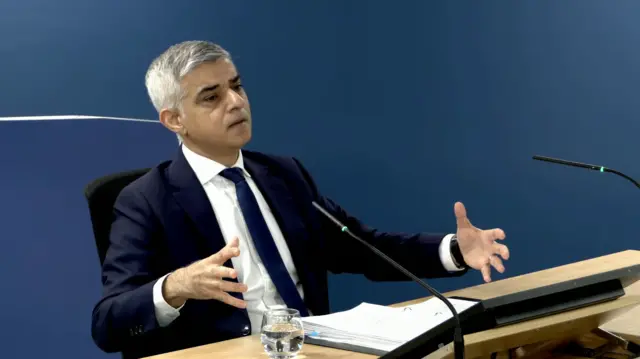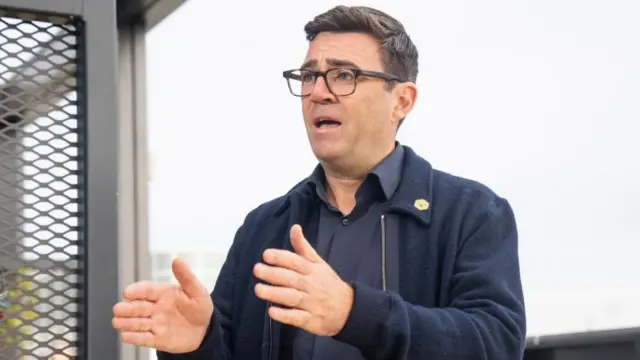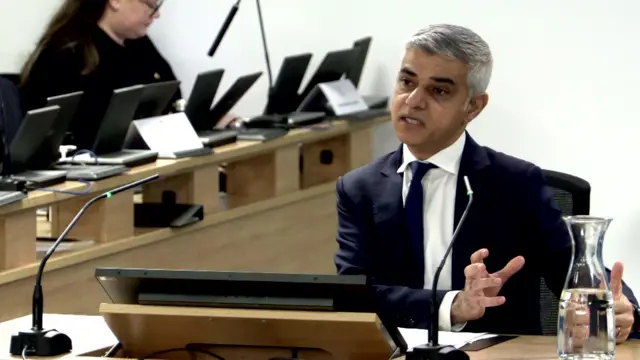We were not sat down and briefed, says Burnhampublished at 14:30 GMT 27 November 2023
Burnham is asked about his last meeting before lockdown was formally announced on 23 March - it was with then Transport Secretary Grant Shapps.
Asked if there was any indication lockdown was about to be announced, he says: "From my memory, it wasn't so much what was happening in those meetings, it was what was happening outside of them."
He says up until 23 March, he can remember "things becoming increasingly fraught" to the point where he appeared on Good Morning Britain on 23 March and called for national lockdown.
"It felt strange to say it when the government weren't saying it at that time," he says.
He continues: "It felt like the whole world was saying 'we cant carry on like this' and yet, from memory, I think Grant Shapps possibly might have alluded to 'there is an announcement coming later'.
"But no, we were not sat down and briefed on the implications of national lockdown."
Two hours later, the PM announced the lockdown on national TV, points out counsel to the inquiry Dermot Keating.



